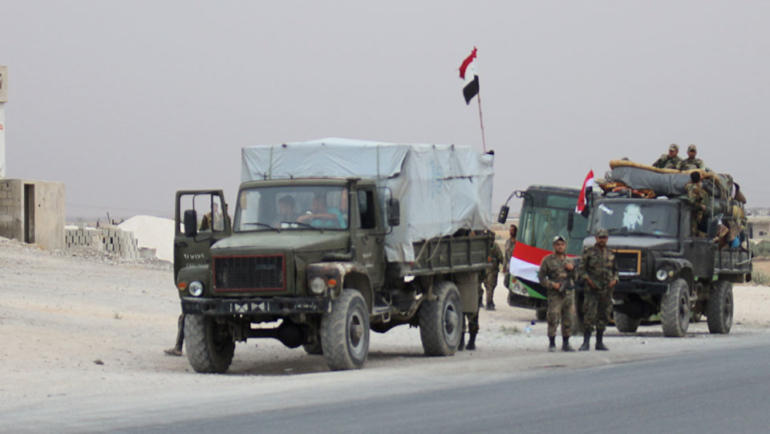Turkey continues its push into Northern Syria despite sanctions and increased calls for a ceasefire. Turkey’s president says he will not stop the offensive until certain conditions are met.
At the same time, Syria’s Russian-backed army is moving into key Syrian towns abandoned by U.S. forces. Top U.S. officials are arriving in Turkey hoping to find a solution. CGTN’s Michal Bardavid has more.
On Wednesday, Turkish President Recep Tayyip Erdogan said Turkey would end its offensive against the Syrian Kurdish YPG in northern Syria only if certain conditions were met.
“Our proposal to solve the issue in Syria in the quickest way is for all terrorists to drop their weapons, destroy their traps and withdraw outside of the safe zone we determined by tonight,” Erdogan said.
Erdogan said Turkey intends to move forward until it can establish a safe zone about 35 kilometers deep – along the line from Manbij to the Iraqi border – Turkey wants this area cleared of YPG fighters and believes Syrian refugees can then return to safely settle there.
In the meantime, fierce fighting reportedly continued in several Syrian towns between Turkish forces and the YPG.
The U.S. wants the fighting to stop immediately. The U.S. imposed sanctions on some Turkish ministries and senior government officials in response to Turkey’s offensive – but so far that has not dissuaded Ankara. On the contrary, Turkey’s Foreign Minister Mevlut Cavusoglu has announced that Turkey would have a “reciprocal response.”
With hopes that dialogue may be more convincing, a U.S. delegation including White House national security advisor Robert O’Brien arrived to Turkey on Wednesday, and on Thursday, U.S. Vice President Mike Pence and Secretary of State Mike Pompeo are expected to meet with Erdogan.
The U.S. wants to mediate between the Syrian Kurdish group YPG and Turkey. Yet earlier, Erdogan said that Turkey does not negotiate with terrorists, and for Turkey, the YPG is a terrorist organization.
Meanwhile, with U.S. troops pulling out of the region, the YPG struck a deal with the Syrian government that led to the Syrian army’s deployment in the key town of Manbij. While Erdogan says he has no issues with the presence of the Syrian army in Manbij, he repeated that the YPG would need to be cleared from the area.
With so many different forces in close proximity to one another, Russia also says it will push for dialogue.
“Russia will continue to act strictly within the confines of international law and the UN Resolution to implement the agreement between Damascus and the Kurds, as well as facilitating cooperation between the Syrian and Turkish authorities to bring security to their joint border as laid out in the 1998 Adana Agreement,” said Russian Foreign Minister Sergei Lavrov.
The Syrian government taking control of critical towns such as Manbij following the U.S. troop’s withdrawal in northern Syria is a significant development in the region. It will likely change the balance of power within the conflict.
 CGTN America
CGTN America Military vehicles transporting Syrian regime troops are stationed on the outskirts of the northern Syrian border town of Kobane (also known as Ain Arab) on October 16, 2019. – Syrian regime troops and Russian soldiers today entered the key border town of Kobane, following a deal struck with Kurdish authorities amid a deadly Turkish offensive, a war monitor said. (Photo by – / AFP)
Military vehicles transporting Syrian regime troops are stationed on the outskirts of the northern Syrian border town of Kobane (also known as Ain Arab) on October 16, 2019. – Syrian regime troops and Russian soldiers today entered the key border town of Kobane, following a deal struck with Kurdish authorities amid a deadly Turkish offensive, a war monitor said. (Photo by – / AFP)
